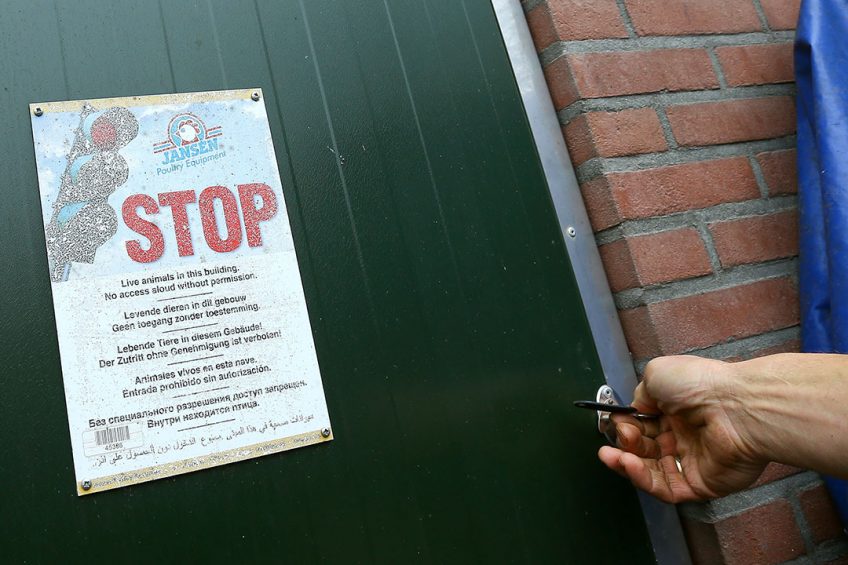Nationwide AI prevention zone declared for UK

The UK’s Chief Veterinary Officer has introduced an Avian Influenza Prevention Zone (PZ) across the whole of Great Britain following a third case in a commercial flock and further incidents in wild birds.
Christine Middlemiss said the action legally required all bird keepers in England, Scotland and Wales to follow strict biosecurity measures to prevent further spread of the virus.
Whether you keep just a few birds or thousands, you are now legally required to meet enhanced biosecurity requirements and this is in your interests to do, to protect your birds from this highly infectious disease.”
It follows confirmation of an H5N8 high pathogenic outbreak in broiler breeder chickens at a farm near Leominster, Herefordshire last week. Earlier this month, a similar high-path H5N8 cases was found at Frodsham, Cheshire and a low pathogenic H5N2 case was confirmed at Deal, Kent. Cases of H5N8 have also been found in dead wild birds in Devon, Dorset and Gloucestershire as well as County Derry in Northern Ireland.
The PZ requires all bird keepers, including backyard and hobby farmers, in Great Britain to:
- Take precautions against transfer of virus contamination between sites or premises, including cleansing and disinfection of footwear, vehicles and equipment
- Ensure the area where birds are kept are unattractive to wild birds – ie through netting ponds
- Feed and water birds in enclosed areas to discourage wild birds
- Minimise movement of people in and out of bird enclosures
- Clean and disinfect footwear and keep areas where birds live clean and tidy
- Reduce any existing contamination by cleansing and disinfecting concrete areas and fencing off wet or boggy areas
- Exercise effective rodent control in areas poultry are kept
- Record all vehicles and people who come into contact with birds
- Record all poultry, captive birds and egg movements
- Ensure bird housing is well maintained, with any water leaks or contamination routes rectified.
For free-ranging poultry, farmers must fence and secure all outdoor range areas to keep birds within the range ensuring that no faecal materials from wild birds contaminates the unit. Access to open or standing water is restricted; feed and water are kept indoors; birds must not come into contact with neighbouring poultry and concrete paths and walkways must be disinfected regularly.
 Track the movement of Avian Influenza
Track the movement of Avian Influenza
For everything you need to know about AI, from the latest outbreaks to controls stay up to-date…
Those with more 500 bird are required to take extra biosecurity measures, which include:
- Operating effective barrier hygiene, including changing clothing and footwear before entering and exiting the live-bird area
- Access to the live-bird area is restricted to authorised personnel and essential equipment and vehicles
- Thorough cleansing and disinfecting of housing and equipment must be carried out at the end of the production cycle before any new birds are introduced
- Regular checks are made on the structural integrity of poultry houses
- Egg producers will need to ensure the packing, handling and storage of second quality eggs/farm seconds is managed in a biosecure way
- Egg trays must be cleansed and disinfected before use and records maintained.
![]() Avian influenza (AI)
Avian influenza (AI)
Find out more about the causes and effects of avian influenza and many other poultry diseases in the Poultry World health tool.
Aimee Mahony, National Farmers’ Union chief poultry adviser, said: “The health and welfare of their birds is a farmer’s top priority and practising good biosecurity is the best way of guarding them from this disease.” Richard Griffiths, British Poultry Council chief executive, added: “We are working with Defra and are remaining vigilant on poultry sites to minimise the risk to the national flock.”













